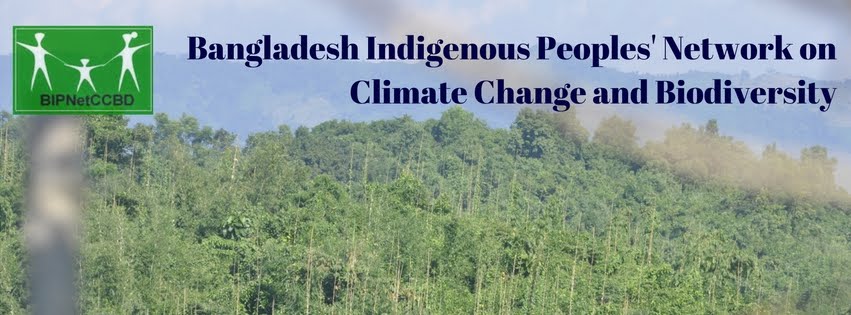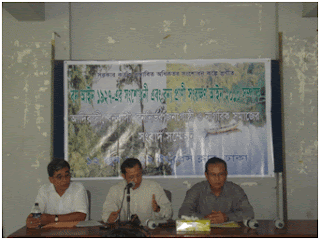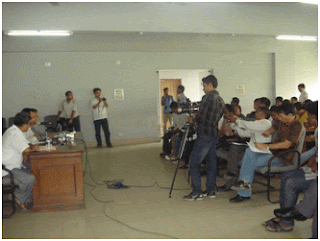A view-exchange meeting on the draft amendment to the Forest Act, 1927 and the draft of Wildlife
(Preservation) Act, 2010, jointly organized by Maleya Foundation,
Movement for the protection of land and forest in CHT, and Bangladesh Indigenous Peoples’ Network on Climate
Change and Biodiversity (BIPNetCCBD) was held at Dhaka press club on July, 08, 2012.
[The distinguished guests are seen immersed in contemplative
mood while paying heed to the audience during ‘open discussion’ session at one
stage of the program.]
With Goutam Dewan,
chairperson of
Movement for the protection of land and forest in CHT in the chair, the program
saw a panel of distinguished guests in Prof. Dr. Mizanur Rahman, chairperson of
National Human Rights Commissison, Hasanul Haq Inu, MP, member of
parliamentary caucus on indigenous affairs, His
Majesty Barrister Raja Devasish Roy, Prof. Dr. Sadeka Halim, commissioner,
Bangladesh Information Commission, Dr. Meghna
Guhathakurta, executive director, Research
Initiatives, Bangladesh (RIB), Syeda
Rizwana Hasan, chief executive, Bangladesh Environmental Lawyers’ Association
(BELA), Shamsul Huda, executive director, Association for Land Reform and
Development (ALRD), and Sudatta Bikash Tanchangya, general
secretary,
Movement for the protection of land and forest in CHT. Besides, a good number
of indigenous peoples from different parts of the country also took part in the
view-exchange program.
“I myself will
forward the objections, alongside the commission's recommendations on removing
the inconsistencies, to the speaker, standing committee on forest and even to the
prime minister,” the head of National Human Rights Commission said, further
asking the stakeholders concerned of the country’s forests to feel free to
submit their objections, if any, on the draft amendment to the Forest Act, 1927
and the draft of Wildlife (Preservation) Act, 2010 to the commission, and
further urging them to compel the government to listen to their rational
demands.
In his speech, Raja Devasish Roy opined that without
going through related laws being followed in other countries, the government is
enacting the two drafts, which would ultimately cause the people of the forest
regions to lose their rights.
Mr. Roy went on saying that when he had been a Special
Assistant to the Chief Adviser (2006-2008) of Bangladesh with the rank and
status of a State Minister for the Ministry of Environment and Forests, he
found that forests and diversity of wildlife are sharply decreasing in the
reserve forests, which are directly managed by the Forest Department and which
in total stand at 24% of the total land in CHT, much to the opposite of the
lands, which are managed by the local indigenous peoples, and which still hold
most of the last remaining forests in CHT. To protect a forest, the local
forest-dependent peoples must be meaningfully involved in the entire process of
forest management; it cannot be protected by lodging criminal cases against
them, he further added.
Jatiya Samajtantrik Dal President Hasanul Haque Inu, MP,
said that before finalizing the draft amendment to the Forest Act, 1927 and the
draft of Wildlife (Preservation) Act, 2010, the government should sit with all
stakeholders concerned of the country’s forests, and in case of CHT, with the
authority of CHT Regional Council.
It should be mentioned that coincidentally, the draft
of Wildlife (Preservation) Act, 2010 was passed in the House on July 08, the
date this view-exchange meeting took place at Dhaka press club.






